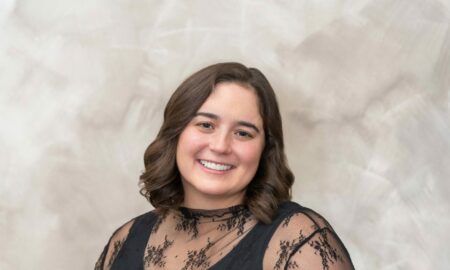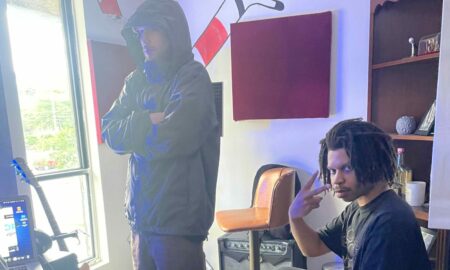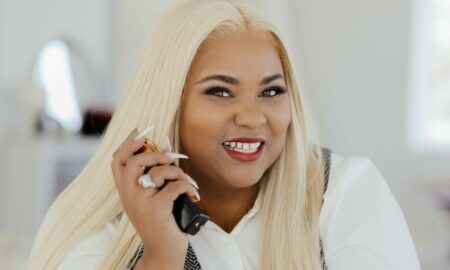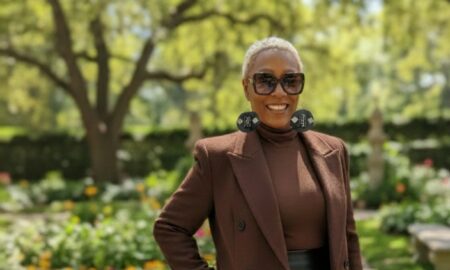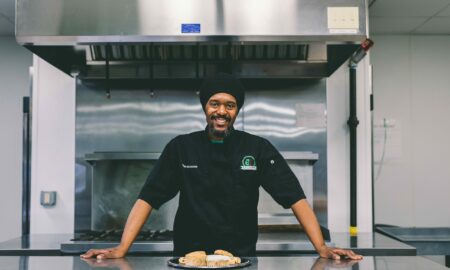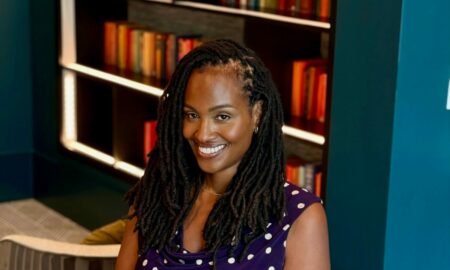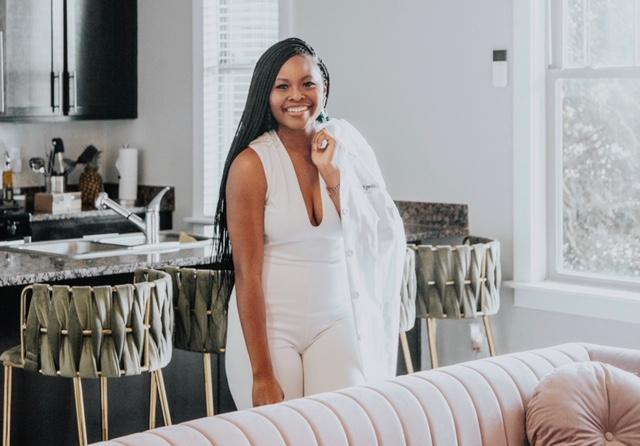

Today we’d like to introduce you to Dr. Nicole (Kelechi) Akpunku.
So, before we jump into specific questions about the business, why don’t you give us some details about you and your story.
When I was fifteen years old, my grandmother was diagnosed with end-stage glaucoma. When she began to constantly rely on me to help her navigate through our home, I gained a greater appreciation for all that my vision allowed me to do, the simple things that someone could normally do on their own were nearly impossible for her. She was unable to cut vegetables, read, or walk long distances without company. As her blindness progressed, I began asking myself what could I have done to help prevent this from occuring? It was this moment that I realized the importance of the concept vision, literally and figuratively. Next thing you know, I was accepted into the Illinois College of Optometry to undergo an intensive doctorate program. Although extremely challenging, the four years raced by and a couple of letters were added in front of my name, Dr. Akpunku. After graduating, I moved to Georgia to start my residency program to take my clinical skills to the next level. Post-residency, I received an amazing opportunity to be the Director of Optometry services at Southside Medical Center.
As easy as it may seem to document this journey of mine, I often wonder, how did I get here? Then I quickly remember, I am exactly where God destined for me to be. It is truly one of the best feelings in the world knowing that I had a vision for myself and I aggressively chased after it. Everyday I wake up happy to go to work to educate my patients on the importance of yearly comprehensive exams. It warms my heart to take care of patients who have various eye diseases such as glaucoma, the very disease that took away my grandmother’s vision away. My childhood experiences are a constant reminder that I choose the best profession.
Great, so let’s dig a little deeper into the story – has it been an easy path overall and if not, what were the challenges you’ve had to overcome?
Like most journeys, I’ve encountered a few road bumps along the way. Getting into Optometry school was by far one of my biggest challenges. I remember vividly studying for the optometry admissions test, not once, but twice. I recall being in a frenzy because I didn’t perform well the first time. On my second attempt, I scheduled to take the test a few months later and as soon as the results came back my heart dropped. My score had only improved by less than 5 points when I needed at least a solid 20 points for my application to be considered to gain admission. As a minority student, I knew the odds were already against me since the acceptance rate among minority populations had always been fairly low. Although I felt defeated, I still decided to push that submit button on my application. Fast forward to my undergraduate graduation ceremony, and after months of not hearing anything, I received a phone call from the admissions office from the Illinois College of Optometry stating that I had been accepted into their program. My biggest lesson learned from this experience was that delay does not always equate to denial. From that moment, my favorite bible scripture has always been Jeremiah 29:11, “For I know the plans I have for you,” declares the Lord, “plans to prosper you and not to harm you, plans to give you hope and a future.”
I was elated and nervous to move from the great state of Texas to unfamiliar territory, Chicago, Illinois. I had always heard about the beautiful yet windy city growing up as a child however, I knew when I moved, I was going to have to be extremely focused on my studies so that I could defy the odds society placed on minority students. As one of two African American students out of class of 155, I initially felt a lack of confidence and was consistently reminded about my fear of failure. This all changed my second year of school when I started my clinical rotations. My patients were mainly African Americans and/or came from families with low socioeconomic status. It was listening and learning my patient’s backgrounds that fueled my decision to become more involved in organizations, particularly an organization called the National Optometric Students Association(NOSA). This organization’s mission is to advance the visual health of minority populations. I began to understand my true purpose. Not just to be an eye doctor, but to go over and beyond to help educate my patients on ocular conditions that mainly affect African Americans such as glaucoma, diabetic retinopathy and hypertensive retinopathy. Looking back at my journey prior to graduation, I remember being so focused on standing out amongst all of my classmates and trying to defy the odds because I thought my sole purpose was to only to become an Optometrist. Little did I know, my purpose would reveal itself through other measures. I became so passionate about diversity in optometry and helping underserved populations that I wanted to take action and start implementing my ideas. I later became the president of the NOSA chapter at my school for two years and then later advanced to national president during my final year of optometry school. The biggest piece of advice I would give to young women is something I mentioned previously and I still repeat to my self frequently, delay does not equal denial. I would also tell them, to follow your purpose and create your own lane.
What should we know about Black Doctor Network, LLC.? What do you guys do best? What sets you apart from the competition?
I am an Optometrist based in Atlanta, GA specializing in primary care with an emphasis in ocular disease and contact lenses. However, over the last year, I have truly focused in on the extremely low statistics of African Americans in Optometry. Less than 3% of African Americans are Optometrists.
Honestly, after residency I was just tired of being one of the very few, if not the only, African American optometrists at every professional event. Rather than continuing to feel like an outsider at most of the optometry events I attended, I was determined to take to action and change the narrative. Although I was nervous and unsure where exactly to start, I dug deep and started planning what I imagined would be a memorable event for African American eye care professionals to network and truly just be seen. Through the process of planning, I began to realize what truly makes me happy, curating events that allow my community to connect.
For Black History Month 2020, I hosted my first networking/ social event for African American Optometrists in the Atlanta area (video link posted below). With over 50 eye doctors in attendance, this event created a fun environment for everyone to network among one another. I received such an overwhelming amount of positive feedback which then propelled me to expand my vision. Following the networking event, an organization titled Black Doctor Network, LLC (BDN) was birthed. The purpose of BDN is to connect African American physicians with hopes to raise awareness to health disparities that have an affect among ethnic populations. BDN will achieve this goal by hosting social/networking events in different states with the first kickoff event in Atlanta, Georgia. BDN plans to continue expanding by traveling to different states including Texas, New York, and the DMV area just to name a few. Although I am not able to provide much more information at this time, I plan to kick things off once we gain control over COVID-19.
As a brand, organization leader, and health care provider, I am most proud of my ability to see things through. A lot of times we allow fear to take control and hold us back from unleashing great ideas and visions that are within us all. I, too, used to be the same way but then quickly realized that life is too short to keep your dreams held in captivity. For this reason, I believe what sets me apart from others is my ability to not let my fear define me but, instead, fuel my actions.
It would be great to hear about any apps, books, podcasts or other resources that you’ve used and would recommend to others.
Over the last few years, I’ve focused a lot of my energy on reading the Bible and watching sermons on YouTube such as Pastor Steven Furtick from Elevation Church and Pastor Michael Todd from Transformation Church. Doing so, I’ve been able to stay motivated through the tough times.
Contact Info:
- Phone: 4693965409
- Email: blackdoctornetwork@gmail.com
- Instagram: https://www.instagram.com/dr.eyetravel/
- Facebook: https://www.facebook.com/nicole.akpunku/




Image Credit:
Asiyami (Gold) Wekolom
Suggest a story: VoyageATL is built on recommendations from the community; it’s how we uncover hidden gems, so if you or someone you know deserves recognition please let us know here.













